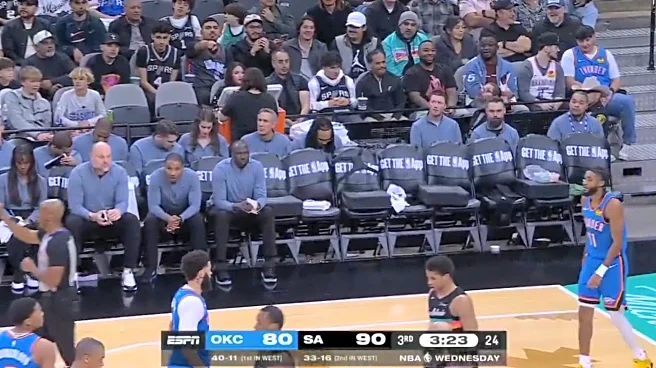What's Happening?
Former British Prime Minister Boris Johnson has denied allegations that his government failed to adequately prepare for school closures during the COVID-19 pandemic. During his testimony at the UK Covid-19
Inquiry, Johnson acknowledged the government's mistakes but insisted that the Education Department was considering school closures as the virus accelerated. He expressed regret over the impact on children, stating that the closures were a 'nightmare idea' but necessary due to the rapid spread of the disease. Johnson's testimony follows that of former Education Secretary Gavin Williamson, who described a chaotic period in March 2020 when schools were abruptly closed. The inquiry, which Johnson agreed to establish under pressure from bereaved families, is examining the government's handling of the pandemic, with a current focus on the impact on children.
Why It's Important?
The inquiry into the UK government's handling of school closures during the COVID-19 pandemic is significant as it addresses the broader impact on children's education and well-being. The rushed decisions and lack of preparation have been criticized for causing long-term harm to a generation of students. This examination highlights the importance of effective crisis management and planning in public policy, especially in education. The findings could influence future government strategies in handling pandemics and other emergencies, ensuring better preparedness and minimizing negative impacts on vulnerable groups such as children.
What's Next?
The UK Covid-19 Inquiry is expected to continue through 2027, with ongoing investigations into various aspects of the government's pandemic response. As the inquiry progresses, it may lead to recommendations for policy changes and improvements in crisis management. Stakeholders, including educational institutions and child advocacy groups, are likely to push for reforms based on the inquiry's findings. The government may face increased pressure to address the criticisms and implement measures to prevent similar issues in future emergencies.
Beyond the Headlines
The inquiry into the handling of school closures during the pandemic raises ethical questions about the balance between public health measures and the rights and needs of children. The long-term educational and psychological impacts on students highlight the need for policies that prioritize children's welfare in crisis situations. Additionally, the inquiry may prompt discussions on the role of scientific advice in government decision-making and the importance of transparency and accountability in public policy.









